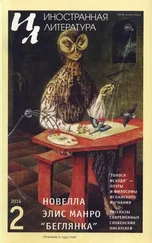The tent roof was only about four feet high. I knelt down and went in, just a little, so that I could reach his hand where it lay on top of the bag. The smell was terrible. I touched his hand: it was dry and hot with fever. Just as I touched it Faro, his nose in the entrance, whined, and at the combination of the noise and the touch he opened his eyes.
“Edward,” he said. “Edward?”
He was not looking at me, or if he was, he was not seeing me; but I think he was looking at my gun, which I was still holding, because the next thing he said was:
“Bullets. It won’t stop…” He did not finish the sentence, but sighed and closed his eyes again. He was dreaming; he was delirious, and his voice sounded thick, as if his throat and mouth were swollen.
“You’re sick,” I said. “You have a fever.”
He moaned, and spoke without opening his eyes again.
“Water. Please give me water.”
I could see what had happened: before he collapsed he had opened a bottle of water and some pills. In his confusion he had knocked them over. The bottle was empty and he was too weak to get more.
“All right,” I said, “I’ll get you some water. It will take a few minutes.”
I got a pail from the kitchen, and ran to the stream where it flowed into the pond, where the water is clearest. When I got back I was hot and out of breath; I had filled it nearly full and it was heavy. I got a cup from the house and dipped it half full.
He was asleep again, so I touched his shoulder.
“Here,” I said, “drink this.”
He tried to rise but could not, not even on his elbow, and when he tried to take the cup he dropped it. I half filled it again from the pail; this time I held it, and lifted his head a little with my other hand. He gulped it down; he was really thirsty.
“More,” he said.
“Not now,” I said. “It will make you sick again.” I did not know much about medicine, but I knew that much. He fell back and went to sleep again instantly.
The truth is, I did not know enough to take care of him. I had helped my mother sometimes taking care of David or Joseph when they got sick (grippe, chicken-pox, things like that), but never anyone this sick. Still, there was no one else, so I had to try.
I got a rag from the house and using some of the water I cleaned as well as I could around his head; I got him a fresh pillow and a clean blanket. I put the pills—those that were still clean—back in the bottle, capped it, and looked at the label: Cysteamine , whatever that is. The only medicine I had in the house (and the store) was aspirin and some cold tablets. But how could I know what medicine to give him anyway?
I thought that since drinking the water had not made him sick again perhaps he should eat something. But what? I decided on soup—chicken soup, since that is what my mother usually gave us when we were sick. I had left some tinned food in the house (it would have looked odd not to) when I moved to the cave, but there was no soup, so I had to walk to the store. I got some other stuff while I was there; I had already decided to move back to the house, but to leave the cave stocked for the time being, just in case. So I had quite a load to carry, and by the time I got back and got a fire going it was nearly dark.
When I took the soup in to him I found, to my surprise, that he seemed somewhat improved. He was awake, and when I entered he stared, quite bewildered, and with some effort managed to raise himself on one elbow. Then he spoke to me consciously for the first time. His voice was still very weak.
“I don’t know where I am,” he said. “Who are you?”
“You’re in the valley,” I said. “You’ve been sick.”
I put the soup down beside him. I had thought I would have to feed it to him.
“The valley,” he said. “I remember now. All the green trees. But there was no one there.” He lay back on the pillow again.
“I was here,” I said. “I stayed in the woods.” (I thought it better not to mention the cave.) “Then I saw you were sick, and I thought you needed help.”
“Sick,” he said. “Yes, very sick.”
“I made you some soup,” I said. “Try to eat it.”
He did try, but his hand was so weak he spilled it from the spoon, so in the end I did feed it to him. He ate seven spoonfuls, and then said, “No more. Too sick.” He fell asleep again. However, I think even that bit of soup did him some good; he seemed to sleep more naturally, and was not breathing so fast. I had brought a thermometer from the house to take his temperature, but I decided it could wait until morning. I touched his forehead. It was hot all right. From close up, in the dimness of the tent, he looked extremely frail.
I went back up to the cave, got my alarm clock, a lamp, this note book and some other things, and came back to the house. I set the alarm for midnight; when it went off I reset it for two o’clock, then for four o’clock. Each time it rang I went out with a torch and looked into the tent to see how he was. Once he woke and asked again for water; I gave him a cupful. The rest of the time he slept steadily.
This morning I crumbled some of the remaining corn bread in some milk and took it to him for breakfast. (I had to use powdered milk because the cows are still out. I will have to catch them now and bring them back in. Also the chickens.)
This time he seemed very much better. His eyes had lost the dazed look they had had earlier. He thanked me for the bread and milk and was able to spoon it out himself. After he finished eating it he actually sat up for a moment; then he lay back again and said:
“I need to find out what made me sick.”
“I think it is because you swam in Burden Creek,” I said.
“Burden Creek?”
“The stream across the road.”
“You know about that?”
“I was watching—from a distance away.”
“You know about the water.”
“Nothing lives in it. I don’t know why.”
“I discovered that. But not until the day after I took a bath in it. So stupid to be careless, after all this time. I had not been in water for a year. I was too eager. Still I should have tested. But that other water, in the pond, was all right. So I thought…” He stopped and lay quietly for a time. Then he said:
“I might as well know. Could you—"
“Could I what?”
“Do you know what a Geiger counter is?”
“Those glass tubes you have.”
“Yes. Can you read one?”
“No. That is, I never have.”
I got the smaller of the tubes out of his wagon, and he showed me a gauge on one end of it, a small needle that wavered a bit when you moved it, like a compass. The dial was numbered from zero to two hundred. As he asked me, I took it across the road to Burden Creek. In the tent and crossing the road, the needle stayed at about five. But when I got near the water it began to go up. Standing back as far as I could, I held it a foot above the stream. The needle shot over—up to about one hundred and eighty, almost as high as it could go. And he had been in the water. No wonder he got sick. I did not stay there, but got back across the road.
When I told him what the needle showed he groaned and covered his eyes with his hand.
“A hundred and eighty,” he said. “And I was in the water at least ten minutes. My God. I must have got three hundred r’s. Maybe more.”
“What does it mean?” I asked.
“It means I have radiation poisoning. Very bad.”
“But you’re getting better.”
“It comes in stages.”
He knew a great deal about radiation sickness; apparently he had studied it even before the war. The first part, being sick, lasts only a day or so, then goes away. Then the radiation caused what he called intracellular ionization, and that was the real damage. It means that some of the molecules in your cells are destroyed, so that the cells no longer work normally and cannot grow and divide. It meant that in a short time—a day or two, maybe longer—he was going to get much sicker. He would get a very high fever, and since his blood cells were damaged and could not reproduce, he would also get anaemic. Worst of all he would have no resistance to germs and infection; he would be very susceptible to pneumonia or even the mildest impurities in his food and water.
Читать дальше
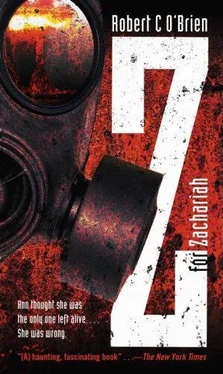
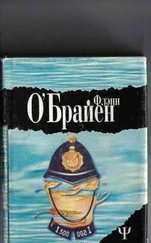
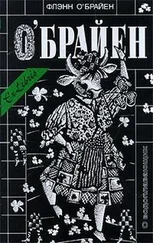
![Роберт Стайн - Дьявольская кровь на завтрак [Monster Blood For Breakfast!]](/books/27867/robert-stajn-dyavolskaya-krov-na-zavtrak-monster-thumb.webp)
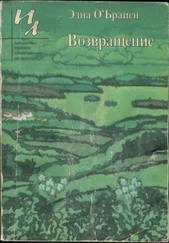
![Роберт Баден-Пауэлл - Искусство скаута-разведчика[Scouting for boys ; Искусство Разведки для мальчиков]](/books/70572/robert-baden-pauell-iskusstvo-skauta-thumb.webp)


